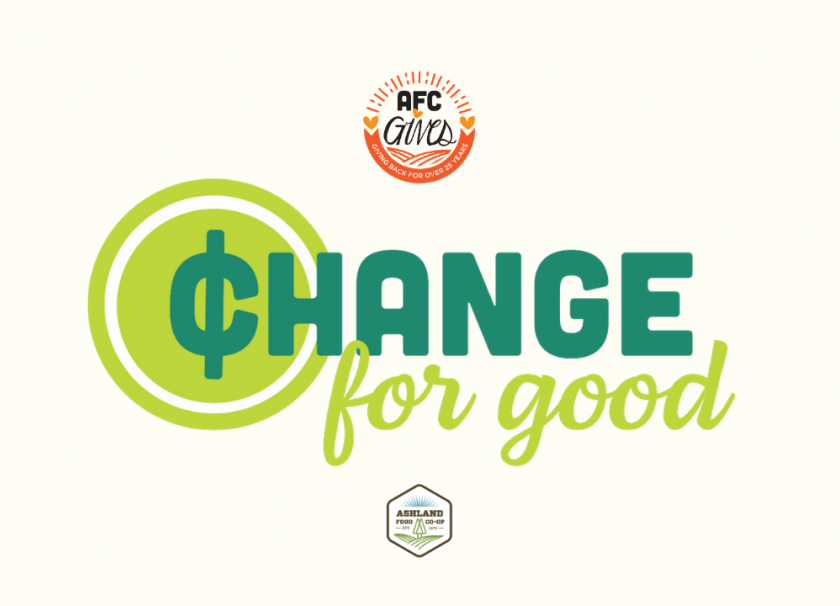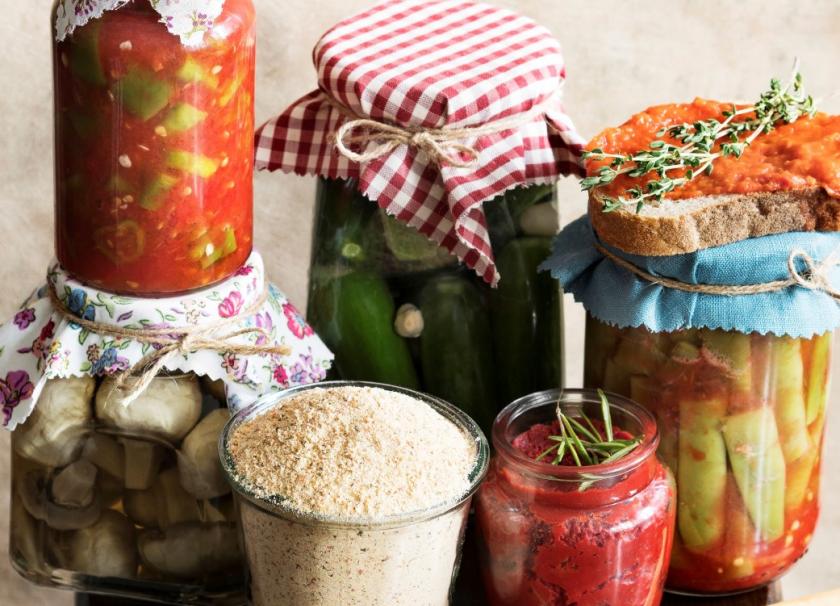
Tips to Stay Safe and Limit Waste
By Mahlea Rasmussen, Education Coordinator
Inspired by Bea Johnson's Zero Waste Home
We are in uncertain times and some of you may be second-guessing some of your zero waste practices and replacing them with safety measures for you and your family. I was proud not to have chemical cleaners in my home and never used plastic gloves - but now those products are being suggested for staying clean and safe. Here are some tips to keep your home safe while working towards more sustainability.
Switch to on-line banking and billing as common practice
Most companies have switched to online methods for billing and banking. Take advantage of these services to limit your contact with outside materials that could be contaminated.
Zero Waste Home, p. 176
You can also go to the following websites to stop some mail from cluttering up your mailbox and limit your contact with outside materials entering your home:
Stop direct mail
Stop credit card and insurance offers
Zero Waste Home, p. 173
Turn off the TV and digital media
In these times of isolation and quarantine, it is easy to turn on the TV and turn off life. Make sure you are taking time away from electronic distractions. Save a little energy and get creative. Take this chance to connect with your family or partner you find yourself quarantined with. A game night, hike or making dinner together are all activities that do not require a screen.
Zero Waste Home, p. 185
Repair it
For the time being, a lot of stores are closed and it is important to limit one's trips out of the home. This takes away the option of simply throwing a needed item away and replacing it. This is a good opportunity to see if you can fix it! If you don't know how to fix the item, there are tons of how-to videos on YouTube and ifixit.com for electronics.
Zero Waste Home, p. 23
Learn how to make it
Due to recent food shortages, and with all of us trying to limit our trips to the grocery store, it may be a more economical option to buy ingredients to make things, like bread. Here are a couple of links for homemade bread from my favorite bloggers, along with a recipe for flour tortillas from Zero Waste Home (p. 71).
Sourdough Tips for the Occasional User
No Knead Artisan Bread
Flour Tortillas
Ingredients
1 1/2 tsp salt
1 tsp baking powder
1/2 cup cold butter
1 cup warm water
Directions
- Combine dry ingredients in a large bowl.
- Incorporate the butter into the mixture and mix with your fingertips until it resembles coarse crumbles.
- Add the water and combine until soft dough forms.
- Separate into 12 small balls.
- Roll out each ball as thinly as possible and cook in a pan over medium heat for 20 seconds on each side.
Preserve It
To help make your trip to the grocery store a little more worthwhile and avoid waste, there are a few things you can do to preserve your perishables.
Dry it - if you are lucky enough to own a dehydrator this is the time to bust it out. Use it to make things like dried fruit, kale chips or jerky. You can also use your oven at a low setting. Check out food-hacks.wonderhowto.com to learn how, and for other great ideas.
Freeze it - Along with soups, broth and berries did you know you could freeze avocado and eggs? Respectfood.com has a list of 15 uncommon and surprising things you can freeze for later.
Refrigerator pickles - if canning intimidates you, try making small batches of pickles. You can also use this method of preserving for other vegetables. I like carrots, jalapeños, and cauliflower. Here is a simple recipe from www.simplyrecipes.com to get you started.
Ingredients
1 small sweet yellow onion
1 cup apple cider vinegar
1 cup water
1/4 cup granulated sugar
1 tablespoon kosher salt
1 1/2 teaspoons pickling spice, homemade or store-bought
- Wash and dry the jars and cucumbers: Wash 2 wide-mouth pint jars and their lids in hot, soapy water. Set them aside to dry.
- Rinse the cucumbers well under cold water, pat them dry, and then set them on a towel to dry completely.
- Slice the cucumbers and onion, then pack them in the jars: With a sharp knife or a mandoline slicer, slice the cucumbers and onion into slices 1/8- to 1/4-inch thick.
- Firmly pack the cucumbers and onions into the jars, fitting in as many as you can without smashing the vegetables. Leave 1/2-inch or so of headspace at the top of the jars.
- Make the brine: In a small saucepan over medium-high heat, bring the vinegar, water, sugar, salt, and pickling spice up to a simmer. Stir occasionally and continue simmering until the sugar and salt are dissolved.
- Pour the brine over the vegetables: If you have a canning funnel, use it here to make it easier to fill the jars. Carefully pour or ladle the hot brine into each jar, filling the jars until the cucumbers and onions are covered. It's ok if a few small pieces poke out the top.
- Cool and refrigerate for 24 hours: Screw on the lids, then let the jars cool to room temperature (about an hour). The cucumbers will start bright green but will become darker and more "pickle-colored" as they cool.
- Place them in the refrigerator. Wait at least 24 hours before eating the pickles to let the flavors develop. Use them within one month.
I hope this inspires you to continue on your sustainable journey and helps keep you and yours safe.
More Co-op News

August Change for Good Partner: Community Works
August's Change for Good Partner is

November Change for Good Partner: Southern Oregon Climate Action Now
November Change for Good Partner: Southern Oregon Climate Action Now
November's Change for Good Partner is

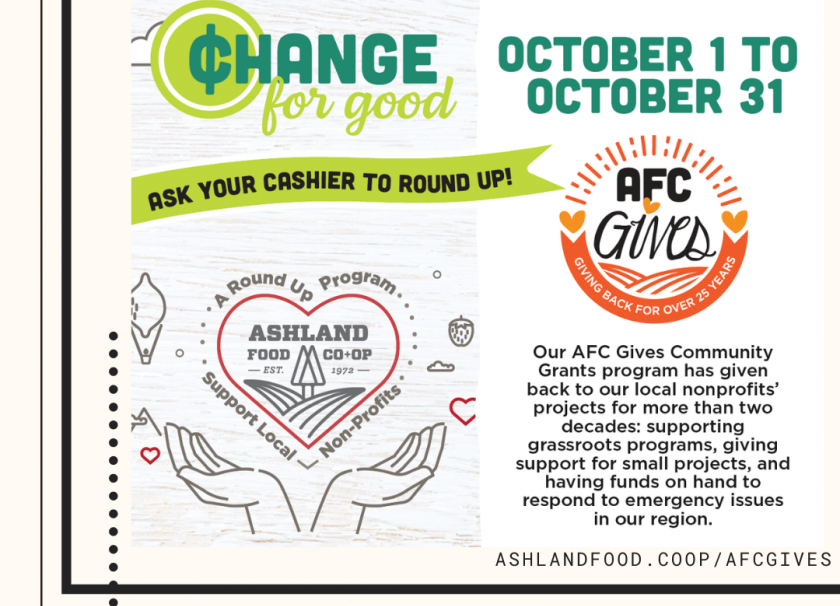
October Change for Good Partner: AFC Gives Community Fund
October's Change for Good Partner is
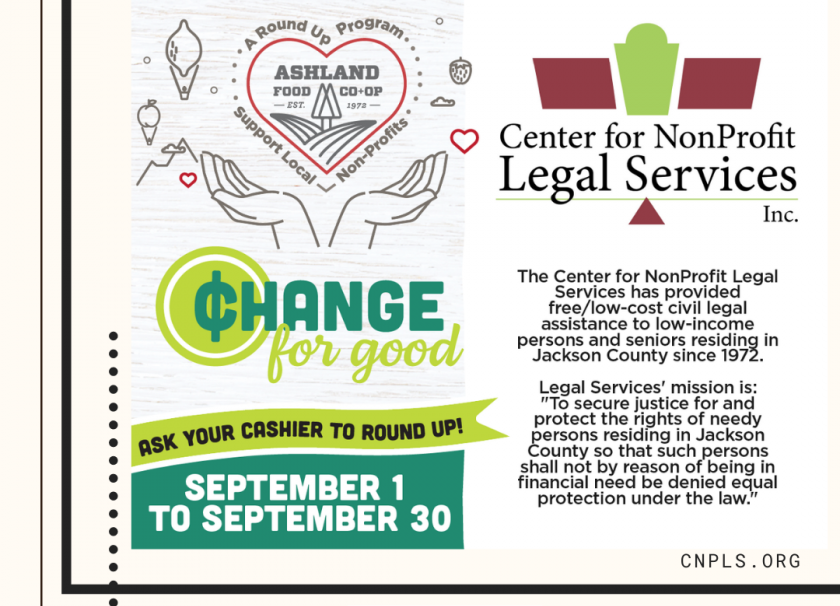
September Change for Good Partner: Center for NonProfit Legal Services
September's Change for Good Partner is
Center for NonProfit Legal Services
The Center for NonProfit Legal Services has provided free/low-cost civil legal assistance to low-income persons and seniors residing in Jackson County since 1972.

August Change for Good Partner: Klamath-Siskiyou Wildlands Center
August's Change for Good Partner is
Klamath-Siskiyou Wildlands Center
(KS Wild)
KS Wild's mission is to protect and restore wild nature in the Klamath-Siskiyou region of southwest Oregon and northwest California.


July Change for Good Partner: Southern Oregon Land Conservancy
July's Change for Good Partner is
Southern Oregon Land Conservancy
Protecting and enhancing precious land in the Rogue River region
to benefit our human and natural communities since 1978
Meet the 1st Street Beet
Welcome to the newly redesigned and reimagined newsletter from the Ashland Food Co-op: 1st Street Beet.
Think of this publication as a resource to know what’s going on in every level of the community: at the co-op, around town, in the region, and on Earth!
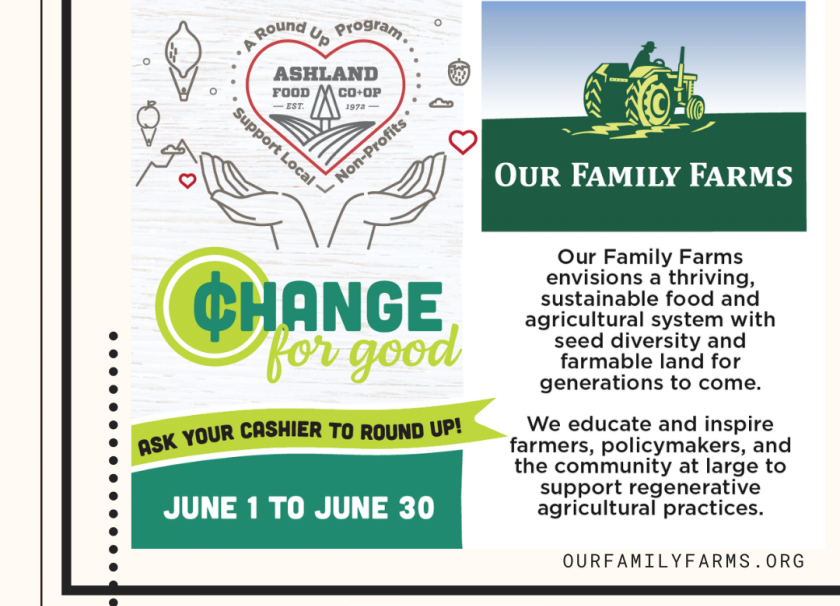
June Change for Good Recipient: Our Family Farms
June's Change for Good Recipient is
Our Family Farms, an Oregon 501(c)3 non profit organization, is hard at work educating and inspiring farmers, policy makers and the community at large to support regenerative agricultural practices.

Capiche Conversations: Interview with Tracy Kaiser, Marketing & Education Manager of Ashland Food Co-op
Our own marketing manager, Tracy Kaiser, was interviewed by Melissa L. Michaels for Capiche Conversations.
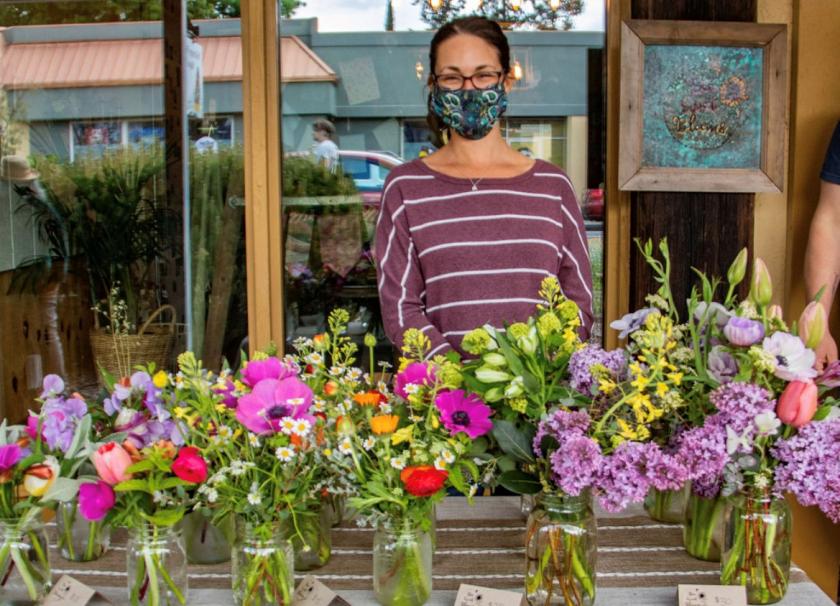
May Day Community Block Party
Photography by Chelsea Whitney Art
On May 1st, several Southern Oregon businesses came together for a block party to provide a space to gather as a community after a rough spell due to the pandemic and fires. The May Day Block Party was hosted on Main St in Phoenix, where the scent of food trucks mingled with artisan goods such as local cheeses, locally farmed flowers, and even fresh-baked pastries.
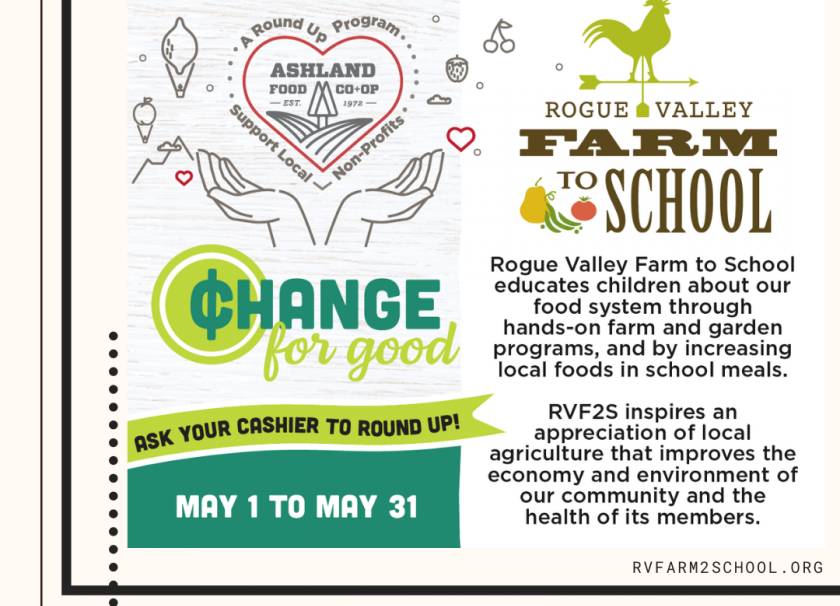
May Change for Good Recipient: Rogue Valley Farm to School
May's Change for Good Recipient is
Rogue Valley Farm to School educates children about our food system through hands-on farm and garden programs, and by increasing local foods in school meals.

April Change for Good Recipient: Pollinator Project Rogue Valley
April's Change for Good Recipient is
